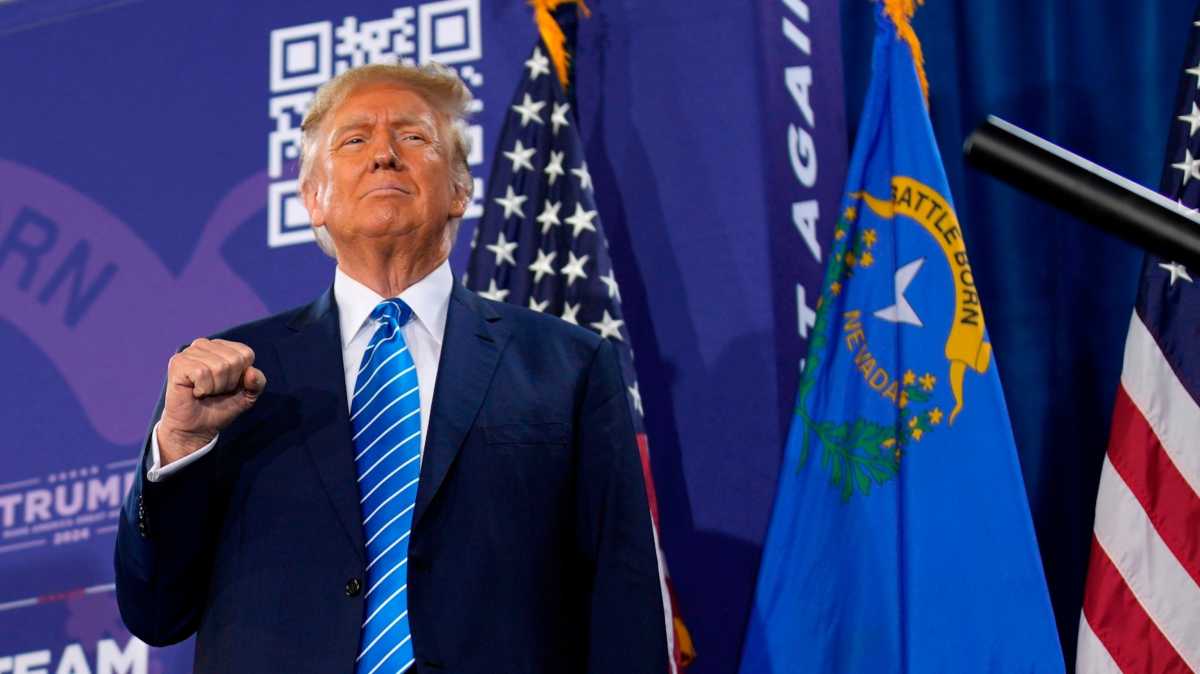Politics
Supreme Court Hears Case on Trump’s 14th Amendment Challenge

The U.S. Supreme Court is currently hearing a landmark case that could have significant implications for the 2024 elections. The case revolves around whether former President Donald Trump can be disqualified from state primary ballots due to his alleged involvement in an insurrection following his loss to Joe Biden in the 2020 election.
The specific lawsuit originates from Colorado, where the state Supreme Court had previously removed Trump from its GOP primary ballot. However, the decision by the U.S. Supreme Court could extend the ruling’s implications beyond Colorado, directly affecting Trump’s political future.
The plaintiffs argue that Trump’s actions subsequent to the 2020 presidential election automatically disqualify him from holding office. Conversely, Trump’s legal team contends that the case against him is an overreach. Legal experts warn that the court’s failure to act promptly would put the nation at great risk.
Norma Anderson, a 91-year-old Republican who holds the distinction of being the first woman to lead the Colorado House of Representatives, is one of the Colorado voters leading the charge against Trump. Being a witness to the Capitol attack three years ago, Anderson views participating in the lawsuit as a means to protect democracy. The plaintiffs are relying on the 14th Amendment, passed after the Civil War, to bar potential officeholders with ties to the insurrection.
Jason Murray, the plaintiffs’ lawyer, argues that the drafters of Section 3 of the 14th Amendment intended for it to be a shield for all time, protecting the Constitution from individuals like Trump. However, during the oral arguments, justices expressed skepticism towards Murray’s interpretation.
The provision in question, known as the Insurrection Clause, has only been implemented eight times since the 1860s. Most recently, it was used two years ago to disqualify individuals who trespassed at the Capitol on January 6, 2021. Nevertheless, it has never been employed against a presidential candidate.
The urgency to invoke this dormant constitutional language stems from the unique circumstances surrounding Trump’s role in the insurrection. Noah Bookbinder, the president of Citizens for Responsibility and Ethics in Washington, which supports the lawsuit, explains that while it would have been ideal to have more time to build cases against defendants in different states, Trump’s attempt to regain power heightened the need for immediate action.
Scott Gessler, a former Republican secretary of state in Colorado who now represents Trump, argues that extending the Insurrection Clause to a former president would have far-reaching consequences. Gessler warns of an onslaught of litigation targeting current President Biden, Vice President Harris, senators, representatives, and others seeking to prevent them from appearing on the ballot.
The crux of Trump’s legal team’s argument is that the 14th Amendment does not apply to the president, as he was not an officer of the United States. The conservative-leaning Supreme Court appeared skeptical of the case, signaling that the outcome might favor Trump.












